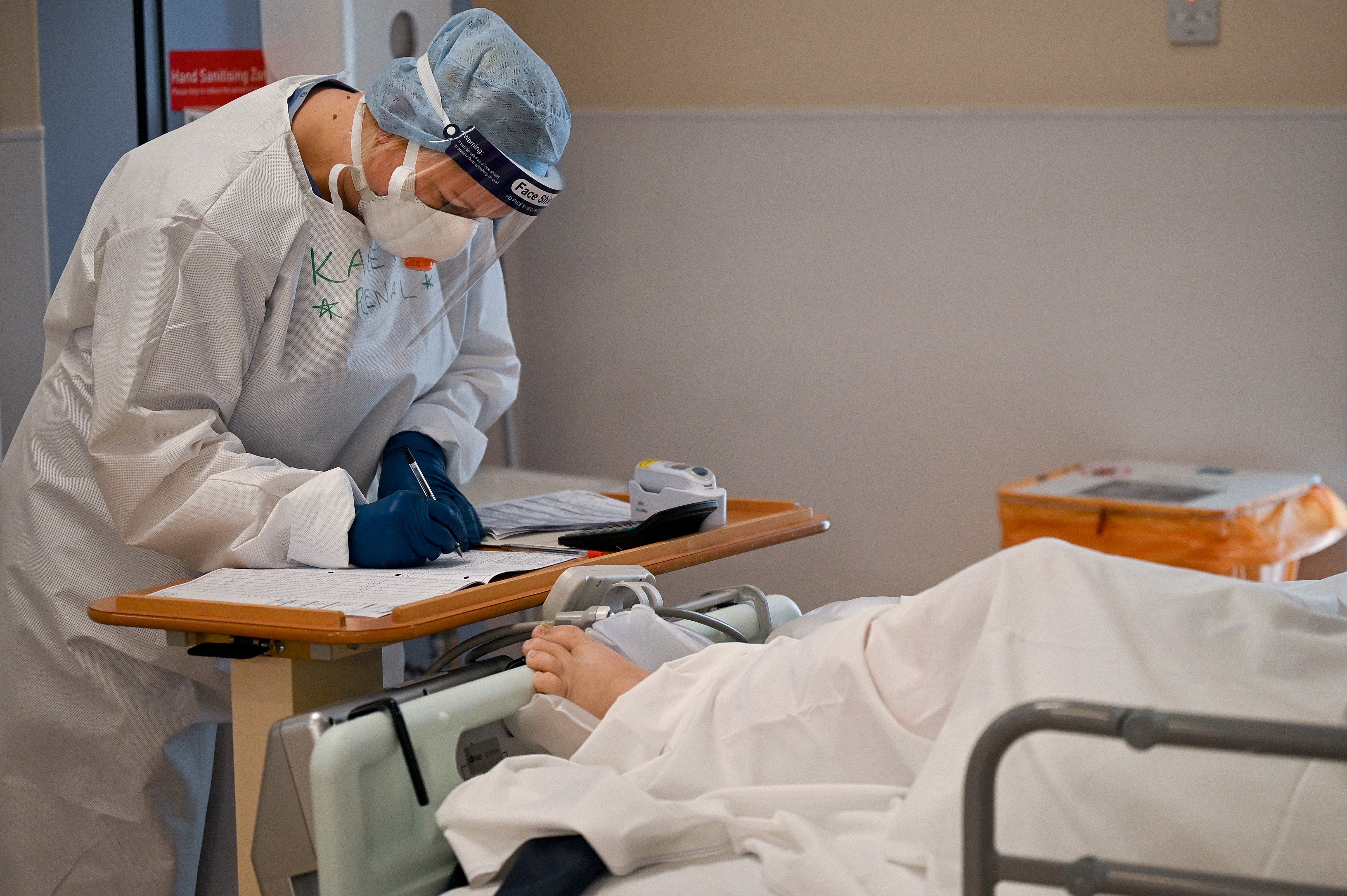The British people are prepared to do more to protect the NHS
Editorial: We have long argued that the UK needs to raise more in taxes to pay for the quality of public services that the people rightly expect

We do not want to say that we told you so, but The Independent did report in July that the government was planning to reimpose restrictions – including masks, social distancing and guidance to work from home – if the NHS came under too much pressure.
While the prime minister’s spokesperson may be right to say that he is not considering a “firebreak” lockdown, it has always been possible that lesser restrictions might be brought back as we head into winter.
The chance of that happening has increased in the past week. As we report today, Covid-19 hospitalisations are increasing at an “alarming” rate, according to Matthew Taylor, chief executive of the NHS Confederation. Despite much of British society returning to something like the pre-pandemic normal, the prospect of hospital capacity being tested by Covid-19 cases remains real and imminent.
We should be clear that this is different from previous waves of infection threatening to “overwhelm” the NHS. The protection afforded by the vaccines means that death rates are likely to remain low, but it seems that the defences against hospitalisation are not as robust as the most optimistic forecasters had hoped.
That means the NHS, already under intense pressure, is like an aeroplane cockpit where the red warning lights are starting to flash. As our award-winning team of health journalists reported over the past week, the Royal Cornwall Hospitals NHS Trust has suspended routine and urgent surgeries, while hospitals in Oxfordshire are experiencing “high levels of demand”.
If there are sensible precautions worth taking, we are confident that public opinion would support the return of minor restrictions. The government has made clear its determination to keep schools open and working as normally as possible, and it is right to do so. Children’s education has been disrupted enough, and the threshold for disrupting it further ought to be set even higher this time. But if the minor inconveniences of masks and reduced social mixing are necessary, they will be tolerated.
The unforgiving light shone on the capacity of the NHS by the crisis and the long recovery from it does raise big questions for the future, however. Just one example is the problem of long Covid. Only a fraction of those suffering from this little understood condition are being supported by the NHS, as we also report today. “There’s far too much demand and not enough workforce or money,” said Claire Hastie, founder of the Long Covid Support campaign group.
The ambition set by Boris Johnson and Sajid Javid, the health secretary, on Tuesday, to increase NHS capacity by 10 per cent in order to clear the backlog from Covid-19 was at the limit of the possible – it was reported that Amanda Pritchard, the NHS chief executive, refused to sign up to a 30 per cent increase – but it is not enough.
The Independent has long argued that the UK needs to raise more in taxes to pay for the quality of public services that the people rightly expect, so although we have reservations about the precise form of the tax rise announced by Mr Johnson, the principle is right. If Sir Keir Starmer, the Labour leader, can embarrass the government into raising taxes on property – and particularly second homes – he will have succeeded in remedying the main unfairness in the revenue-raising plan.
It may seem surprising, after one of the biggest tax rises in British history, to complain that it is not enough, but such is the legacy of a decade of underspending, and of a pandemic that exposed the weaknesses of an NHS run as a crisis service before there was an actual crisis. The government must work towards a situation where the NHS has sufficient spare capacity to withstand the next crisis. In the longer term, that may mean higher taxes still.



Join our commenting forum
Join thought-provoking conversations, follow other Independent readers and see their replies
Comments